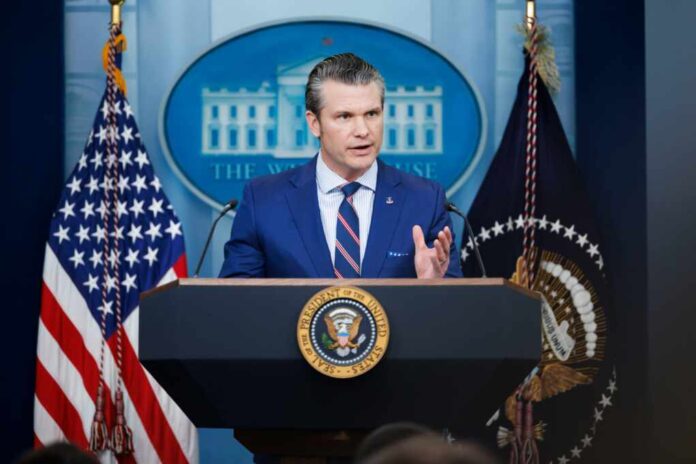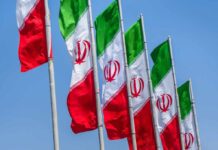
Pentagon officials unleash fiery accusations against mainstream media, alleging that biased coverage supports Iranian propaganda, discredits U.S. military achievements, and doggedly aims to tarnish Trump’s leadership.
At a Glance
- The Pentagon accuses the media of undermining U.S. military efforts.
- Leaked war plans shared with a media editor caused vulnerabilities.
- The media’s portrayal of intelligence leaks distorts troop sacrifices.
- Aimed at President Trump, media bias undermines public trust.
The Accusation of Media Bias
Pentagon officials, led by spokesperson Sean Parnell and Defense Secretary Pete Hegseth, slammed mainstream media for allegedly supporting Iranian propaganda and besmirching U.S. military efforts amid Iran tensions. The officials point to a Washington Post headline that questioned U.S. military actions against Iran’s nuclear sites, labeling these reports as skewed and dishonest. They argue this dangerous narrative from the media aims to smear President Trump, ultimately eroding public trust in the military’s accomplishments.
Watch: Hegseth attacks media, touts military in Pentagon briefing on Iran strikes
Parnell and Hegseth did not hold back in vehemently criticizing these biased media narratives. They argue that the media’s use of incomplete and sometimes false intelligence effectively serves as a “weaponized smear campaign” against American troops. Parnell said this behavior from the press undermines the service and sacrifices of U.S. servicemen and women.
.@CarlHigbie agrees with Secretary of Defense Pete Hegseth, calling out Liberal media, saying that most outlets are more concerned with publishing "the most salacious, high profile" story for attention while not understanding that "certain things should be kept off the air." pic.twitter.com/RprhSHWOm6
— NEWSMAX (@NEWSMAX) June 26, 2025
The Unfortunate Security Breach
The criticism isn’t limited to simply accusatory rhetoric. There’s a dire context here involving a serious breach in operational security. Senior national security officials accidentally shared sensitive war plans through an unsecured group chat, leading to a potentially precarious situation for U.S. military and intelligence personnel. This conversation, unintentionally exposed to Jeffrey Goldberg, Editor-in-Chief of The Atlantic, included operational details on airstrikes against Houthi targets in Yemen—details adversaries could exploit.
“The Trump Administration Accidentally Texted Me Its War Plans” – Jeffrey Goldberg
A Dangerous Path Forward
Yet again, there’s a recurring theme of distracting from constructive dialogue and distorting the truth for ulterior motives. Pentagon officials argue ardently that using these leaks to craft narratives against Trump’s leadership isn’t just misleading; it’s harmful to the trust citizens place in their defense institutions. The message is clear—the media’s portrayal must honor the valor and strategic brilliance of U.S. troops, rather than assisting adversarial narratives.
“Time and time again, classified information is leaked or peddled for political purposes to try to make the president look bad. And what’s really happening is you’re undermining the success of incredible B-2 pilots and incredible F-35 pilots and incredible refuelers and incredible air defenders who accomplished their mission, set back a nuclear program in ways that other presidents would have dreamed.” – Pete Hegseth

























